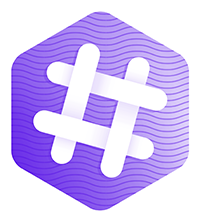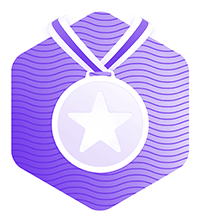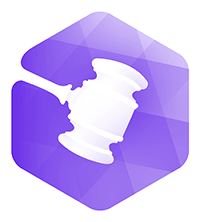This is a follow-up to the article I wrote 21 months ago explaining why you should host your giveaways on your website, instead of on your social media profiles. If you have not read the original article, please do so here: Stop Running Giveaways on Social Media!
The Social Illusion (21 Months Later)
Two years may not seem like that long of a time, but in ‘internet years’, it is a very long time considering how quickly the landscape changes.
Many rules of the game have changed for companies focused on growing their social channels, altering how quickly and easily their social communities can be grown.
21 months ago, companies were obsessed with growing their Facebook Likes at all costs; some even went so far as to purchase Likes just to inflate the number, forming what we call the ‘social illusion’.
Facebook eventually cracked down on these fake Likes, purging millions.
One of the legitimate methods to obtain Likes has always been to run a sweepstakes, contest, or giveaway on your Facebook page.
Using ‘Like-gating’, people were forced to Like a Facebook page before they could enter a promotion, which would help businesses quickly grow their Facebook Likes.
But…are gathering Likes even worth it? Brands’ ability to reach customers organically on Facebook has been declining over the past year; showing up in their news feed with decreasing regularity, effectively making the process of obtaining Likes pointless.
In fact, the issue became such a hot topic that Facebook even published a post discussing why organic reach was dropping: Organic Reach on Facebook: Your Questions Answered.
Facebook suggests two main reasons. The first is that more and more content is being created, so a brand’s share of the ‘News Feed pie’ is inherently getting smaller and smaller.
Second, Facebook has refocused the News Feed toward showing users content that is more “relevant” to topics they have clicked on or Liked previously.
Ever wondered why so many similar articles and videos (or even the nonstop wedding and baby pictures) have been popping up on your feed?
Many businesses did everything they could to get more people to Like their page, but over time the people who Liked their pages were no longer even seeing those pages’ posts.
The only real way to reach your Facebook audience was to pay to advertise your posts—funny how that works.
If you’re already running promotions and marketing campaigns to obtain new Likes, and then Facebook is making you pay to then have your content seen by the people who already Like your page, you’re having to work twice as hard and pay twice as much.
To make matters worse, Facebook recently made two more major announcements.
The first announcement came on August 7, 2014, neatly tucked away in their Graph API v2.1 post, where they mentioned that starting on November 5th, 2014, they were removing the ability to use the Like-gate, and that you are no longer allowed to incentivize people to use social plugins or to Like a page.
This meant that the method of running sweepstakes, contests, or giveaways to grow your Likes would be much less effective because you could no longer force people to Like your page or incentivize them to Like your page with bonus entries.
Facebook’s post said:
“To ensure quality connections and help businesses reach the people who matter to them, we want people to Like Pages because they want to connect and hear from the business, not because of artificial incentives. We believe this update will benefit people and advertisers alike.”
Coincidentally, 21 months ago, I said nearly the same exact thing:
“If you use ‘Lke-gating’ (forcing people to Like your page before they can enter a promotion) you are just reinforcing the ‘social illusion’…. While you may still be able to convert a few of those Likes into customers, you need to remember that it’s about quality, not quantity. Don’t force people to Like something. If they like it, they will do it on their own.”
The second major announcement came on November 14, 2014, alerting people that beginning January 1, 2015, people would see less promotional page posts in their news feeds.
This means businesses will have even less of an organic reach, and much fewer people will see their page posts.
Facebook is, of course, saying that pages that create quality content will have their posts seen more, but only Facebook knows what their algorithms will deem as quality content and overly promotional content.
Bottom line: social media should be used as a tool to bring customers and readers to your own website, where you have full control over what they see. Long gone are the days of treating your Facebook page like the replacement for your website.
You don’t own social (21 Months Later)
I preached it once, but I’ll say it again: you don’t own your social media pages. In today’s social landscape, those words couldn’t ring any more true.
Just because you have built an audience or a community on Facebook, Twitter, or Pinterest, doesn’t mean you have ownership over that audience or will have direct access to that audience at all times.
Your number one focus should be growing your business: your website, your email list, and anything else that you directly own. The money that you pour into those objectives will allow you to always reap the benefits and rewards that come from it.
In terms of Facebook, businesses that poured thousands of dollars into growing their Likes can no longer reap the same rewards from it because Facebook has changed the rules of the game, and they continue to do so.
Don’t get me wrong, social is a great tool that every business should utilize to help grow their business, but some businesses have gone 100% all-in on Facebook and forgotten about their own website.
Others have gone to the other extreme and deleted their Facebook page altogether to refocus their marketing, like GrooveHQ, CopyBlogger, and Eat24—very respectable businesses.
You own your website (21 Months Later)
With all the changes happening in the social landscape, there’s one thing that’s still for sure: you own your website.
Besides ViralSweep, there has been a flurry of services that have come out over the past year that can help you grow your audience on your website.
Whether you’re looking to collect emails, provide digital rewards, offer coupons, or real-time customer support, there is now a tool out there that can help you do virtually anything on your website.
These tools allow you to set your own rules on your own playing field, rather than trying to build an audience on top of another infrastructure that you do not own.
Bring the herd to you (21 Months Later)
Even 21 months after that original post, we still to this day have companies that come to ViralSweep insisting that their campaign has to be run on Facebook.
I like to bounce some questions their way and figure out what good reason they have for running it on Facebook rather than on their own website.
Most say that they want to get more Likes, while others say that it’s easier for them to do it on Facebook, so they don’t have to get their developers or IT team involved.
While these may be valid arguments, the benefits of running it on your own website outweigh the benefits of running it on Facebook.
Here are the reasons why you should run promotions on your website vs. Facebook, as detailed in my previous post:
“You are hosting a giveaway on a website you don’t own, for a website you do own.
You must follow the strict promotion guidelines of Facebook. Remember, they legally reserve the right to remove your page at any time, for any reason, without warning.
You are collecting people’s information on Facebook, to grow your business. Three months from now when you send out a marketing email to those people directing them to your website, do you think they will remember your business if they never saw your website in the first place? You’ll most likely have a HUGE unsubscribe rate and several spam complaints.
If you use ‘Like-gating’ (forcing people to Like your page before they can enter a promotion) you are just reinforcing the social illusion as discussed above. While you may still be able to convert a few of those Likes into customers, you need to remember that it’s about quality, not quantity. Don’t force people to Like something. If they Like it, they will do it on their own.”
Now, almost 2 years later, we can add some more reasons to that list:
- Promoting the giveaway on your Facebook page will reach a smaller audience because organic reach has dropped significantly. Sure, you can send traffic from your email newsletter to a Facebook page tab, but it makes more sense to send them to your website, where you sell your products and services.
- Like-gating is a thing of the past, so you can no longer force or incentivize people to Like your Facebook page to enter a promotion. Therefore hosting a promotion on your Facebook page for the sole purpose of increasing Likes is no longer worth the effort.
- Facebook does not show page tabs on mobile, so those who are trying to access your page tab from a mobile device may not be able to do so if the links are not properly optimized.
- You have no control over what the user does on Facebook after they enter your promotion. Oh look, a BuzzFeed article!
- It’s harder to track where a user goes after they leave your Facebook page tab. On your website, once they enter you can see where they navigate to next and adjust your marketing strategy appropriately.
In my original post, I referred to GoPro as a company that was doing it right. They had a Facebook tab that linked users directly to a page on their website where their giveaway was hosted.
After checking in on GoPro’s daily giveaway 21 months later, they’ve made one adjustment; they no longer have a Facebook page tab linking to their giveaway page.
Instead, they’ve just spruced up their daily giveaway page on their website to make it more user-friendly.
Additionally, once you enter, they encourage you to follow their social channels, and then they provide you with links to check out their products. This gives them full control over what the user sees and where they can navigate after they enter the promotion.
Treat social like a tool, don’t let it rule your business
When it comes to managing your social properties, you should never let them become the replacement for your website.
Here’s a great example: we pay for a particular service at ViralSweep that has had a lot of bugs and operational issues lately. We use this service on a daily basis, and we’re always logged into the service.
However, instead of providing notifications within the service to alert users of issues that are occurring, the company instead took to Twitter and Facebook to announce the problems.
We don’t follow this company on Twitter or Facebook, so it wasn’t until we contacted them about the issue that they said, “we let everyone know about this through our social channels”.
See where I’m going with this?
Instead of their website being the first line of communication with paying customers who are logged into the service, the company instead communicated the issues via social channels assuming all of their customers will see the updates, or at least look for them there, rather than on their own website.
The same can be said for promotions – we’ll see companies posting about giveaways they are hosting on Facebook or Twitter or Pinterest, but there’s not a word about it on their website, where they actually sell their products or services.
How are people supposed to know you’re hosting a promotion if it’s not even mentioned on your website?
Oh, right… we should check your social channels.
My point is, if you’re a brand, your website should be the first line of communication with your audience, and social should be a tool that is used to extend that line of communication to other channels.
Recap
Not much of what I had said in my original post has changed over the past 21 months, in fact, most of it has become more true for many people.
As we move into 2015, I believe we are going to see more and more businesses moving back to their roots, treating social media as a tool to drive actions on their website, rather than treating social as if it is their website.
On November 17, 2014, the Wall Street Journal published this post: Brands Are Wasting Money on Facebook and Twitter, Forrester Says.
Nate Elliott, the man behind Forrester’s claims, makes two very important points in his post on the Forrester blog:
Point 1:
Add social relationship tools to your own site. Our 2015 social predictions emphasize the renewed importance of branded communities, and for good reason. A recent Forrester survey shows that US online adults who want to stay in touch with your brand are almost three times as likely to visit your site as to engage you on Facebook.
Point 2:
Stop making Facebook the center of your relationship marketing efforts. That same survey shows that US online adults who want to stay in touch with your brand are almost twice as likely to sign up for your emails as to interact with you on Facebook. Plus your emails get delivered more than 90% of the time, while your Facebook posts get delivered 2% of the time.
It will be interesting to see how the marketing landscape shifts as we move into 2015 and beyond. I think we will eventually look back at Facebook from a marketing standpoint and say, “well that was fun for a while”.






















14+ Best Giveaway Ideas For Events - ViralSweep
[…] ownership over that audience or will have direct access to that audience at all times,” wrote Giancarlo Massaro, co-founder of […]